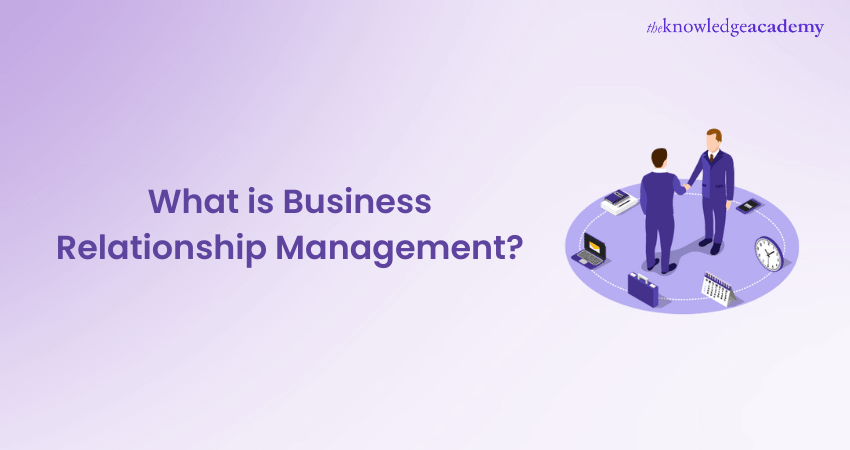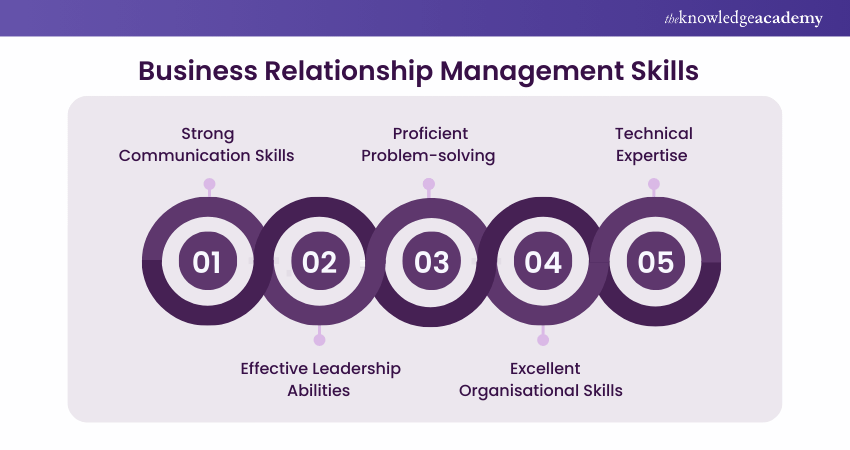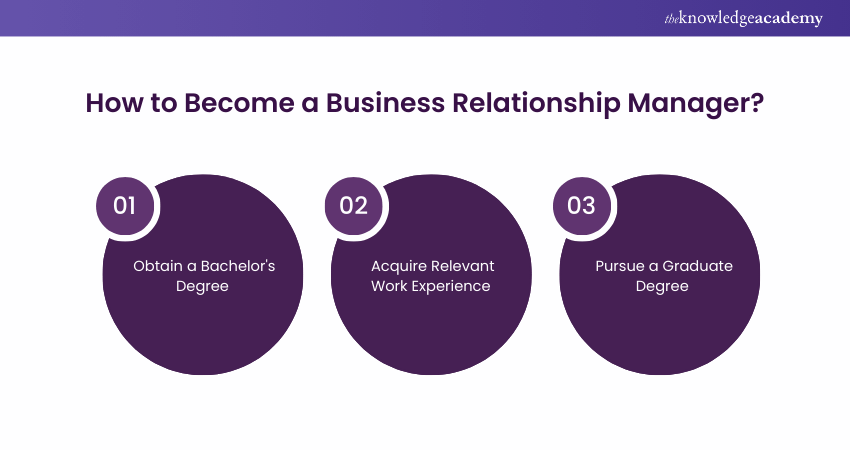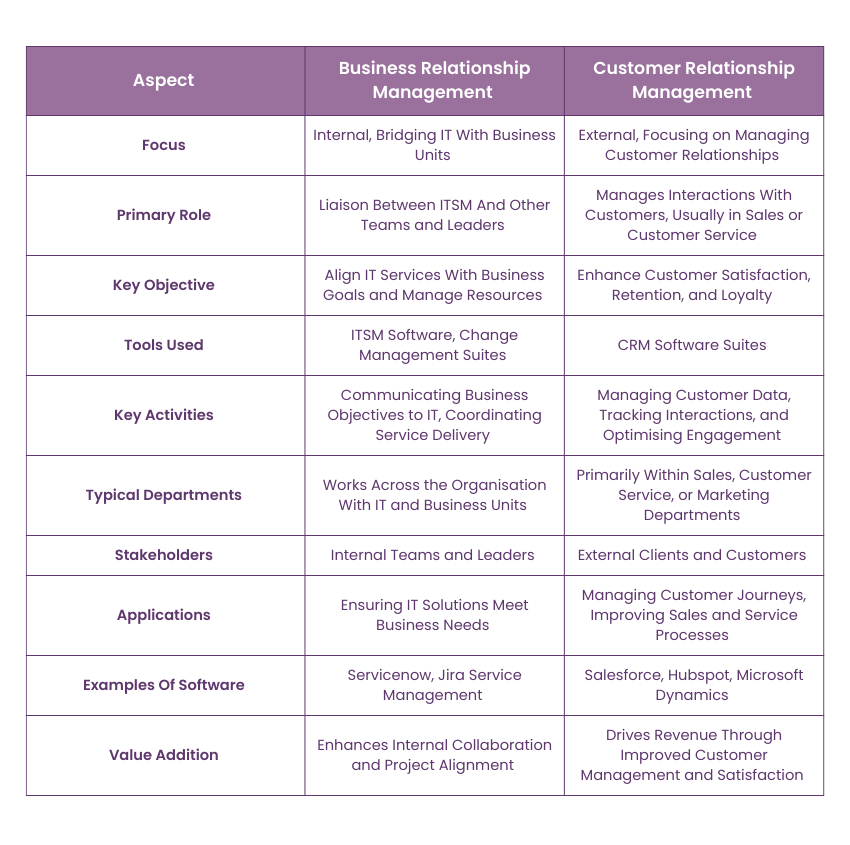We may not have the course you’re looking for. If you enquire or give us a call on +44 1344 203999 and speak to our training experts, we may still be able to help with your training requirements.
Training Outcomes Within Your Budget!
We ensure quality, budget-alignment, and timely delivery by our expert instructors.

Picture this: A company's sales team is struggling to meet targets because they aren't getting timely support from the Information Technology (IT) department. Frustrations mount, and productivity plummets. This is where Business Relationship Management (BRM) can make a transformative difference. This is the key to unlocking seamless cooperation between different business units. It ensures that every department's needs are understood and aligned with the entire goals of the organisation.
In this blog, we'll delve into the core principles of Business Relationship Management, its numerous benefits, and practical steps to implement it in your organisation. Ready to revolutionise your business relationships? Let's get started!
Table of Contents
1) What is Business Relationship Management?
2) Business Relationship Management Process
3) Business Relationship Management Skills
4) How to Become a Business Relationship Manager?
5) Business Relationship Management vs. Customer Relationship Management
6) Conclusion
What is Business Relationship Management?
Business Relationship Management (BRM) is an ITIL® (IT Information Library) discipline that aligns the efforts of IT teams with senior leaders, managers, and operational stakeholders in large organisations.
BRM is crucial because business objectives often do not align seamlessly with technical realities, and vice versa. This misalignment can hinder the achievement of business and operational goals.
In essence, an IT professional in a BRM role acts as a translator. BRMs identify solutions to challenges and advocate for IT projects that need to be implemented, such as process improvements, system and service overhauls, updates, and the development or integration of new software within the company.
Business Relationship Management Process
To work in coordination with business goals, the IT experts follow Business Relationship Management processes. Let’s have a look at it
1) Business Relationship Management
BRM emphasises maintaining strong connections between business and IT units, acting as a marketing arm within the organisation. The BRM team communicates across various levels, from daily operations to strategic planning. This ensures the right services are delivered to customers at a reasonable price. Businesses leverage IT technologies to gain an edge over their competitors.
2) Supplier Relationship Management
Supplier Relationship Management governs interactions between vendors, including IT infrastructure suppliers and service providers. By utilising these processes, businesses ensure suppliers effectively meet customer needs, promoting a healthy relationship between them.
3) Liaison, Education, and Communication
These activities expand the scope of business perspective processes. It includes:
a) Teaching all stakeholders on both IT and business terminologies
b) Sharing strategic plans between organisations
c) Briefing business units about the service catalogue
d) Simplifying and describing Service Level Agreements (SLAs)
e) Educating the IT team on different business processes, the problems they face, and vice versa
4) Planning, Review, and Development
The Planning, Review, and Development process in Business Relationship Management (BRM) is essential for aligning IT services with business needs and objectives. This process involves several key activities focused on continuous improvement and strategic alignment between business units and IT. Planning, reviewing, and developing are necessary to sustain alignment and effectiveness.
Master effective team leadership with our Introduction To Supervising A Team – Join now!
Business Relationship Management Skills
A Business Relationship Manager requires a combination of soft and hard skills to thrive in their roles. Here are some essential skills for professionals:

1) Strong Communication Skills
Effective and strong communication skills help in collaborating with professionals across various domains. The Business Relationship Manager must frequently engage with company executives, customer representatives, and internal and external managers. This helps them understand the business's needs and goals. The manager can then make a customer engagement plan to boost client satisfaction.
2) Effective Leadership Abilities
Under this role, professionals use their leadership skills to lead their team in accomplishing departmental objectives. They acknowledge the team’s vision and mission and delegate responsibilities to facilitate transparency. The manager also resolves internal conflicts and motivates the team to meet timely targets.
3) Proficient Problem-solving
Proficient problem-solving skills are essential for Business Relationship Managers as they devise methods to improve customer engagement. The role considers the company’s strengths and weaknesses to identify areas for improvement. Based on these findings, the manager proposes strategies to meet customer satisfaction goals. Furthermore, problem-solving skills address daily work challenges.
4) Excellent Organisational Skills
Excellent organisational skills allow managers to effectively communicate with a variety of groups to handle their daily responsibilities. The abilities consist of managing time, organising materials, and prioritising tasks to accomplish deadlines. By maintaining focus and staying organised, they can handle stress and maintain confidence in their role.
5) Technical Expertise
A BRM manager must possess strong IT skills to succeed in their roles, as they use software to collect customer satisfaction data. They must also be experts in Customer Relationship Management (CRM) systems to enhance their efficiency and stay adaptable in evolving environments.
Elevate your customer interactions with our Exceptional Customer Service Training – Register now!
How to Become a Business Relationship Manager?
Here is a step-by-step process to become a Business Relationship Manager:

1) Obtain a Bachelor's Degree
You must have at least a bachelor's degree in a relevant field like Economics, Business Administration, Finance, etc. Alternatively, a degree in Data Science, IT or Computer Science helps you utilise specialised technologies. Take an entry-level role as an IT specialist and gain experience as you climb the ladder toward a Business Relationship Manager. Develop skills in data gathering, assessing and reporting.
2) Acquire Relevant Work Experience
Pursue an internship to develop relevant skills and connect with established professionals in this field. This way, you gain early industry experience. Additionally, participate in extracurricular activities to build solid leadership skills that will support your career growth.
3) Explore Pursuing a Graduate Degree
Opt for a master's degree in Business Administration or Business Relationship Management. The degree can be completed within two years, providing a deeper understanding of management and data-analytic skills. A graduate degree also makes you eligible for high-level roles.
Business Relationship Management vs Customer Relationship Management
BRM is a cross-functional role that handles the relationship between business leaders, Information Technology Service Management (ITSM), and other teams. As a liaison, the Business Relationship Manager can communicate effectively and deliver projects on time.
On the flip side, Customer Relationship Management deals externally, mainly in customer service functions and sales in Business-to-Business (B2B) companies. The CRM team use CRM software to offer a seamless management service to a large customer base.
Both roles differ significantly; however, they share the same goals as customer engagement, project progress, etc.

Conclusion
To wrap up, Business Relationship Management is your secret weapon for fostering seamless collaboration and achieving business excellence. By bridging gaps between departments and aligning their goals, BRM transforms organisational dynamics. Embrace BRM and unlock your organisation's full potential!
Learn client engagement techniques with our Building Business Relationships Course today!
Frequently Asked Questions

The essential goal of Business Process Improvement is to improve efficiency, minimise costs, and boost overall productivity. It is essential for meeting business goals.

Process optimisation, performance measurement, and continuous evaluation are three core elements of Business Improvement.

The Knowledge Academy takes global learning to new heights, offering over 30,000 online courses across 490+ locations in 220 countries. This expansive reach ensures accessibility and convenience for learners worldwide.
Alongside our diverse Online Course Catalogue, encompassing 19 major categories, we go the extra mile by providing a plethora of free educational Online Resources like News updates, Blogs, videos, webinars, and interview questions. Tailoring learning experiences further, professionals can maximise value with customisable Course Bundles of TKA.

The Knowledge Academy’s Knowledge Pass, a prepaid voucher, adds another layer of flexibility, allowing course bookings over a 12-month period. Join us on a journey where education knows no bounds.

The Knowledge Academy offers various Personal Development Courses, including Building Business Relationships Course, Exceptional Customer Service Training, and Time Management Training. These courses cater to different skill levels, providing comprehensive insights into What is Public Relations (PR).
Our Business Skills Blogs cover a range of topics related to Business Relations, offering valuable resources, best practices, and industry insights. Whether you are a beginner or looking to advance your Business skills, The Knowledge Academy's diverse courses and informative blogs have got you covered.
Upcoming Business Skills Resources Batches & Dates
Date
 Building Business Relationships
Building Business Relationships
Fri 17th Jan 2025
Fri 7th Mar 2025
Fri 23rd May 2025
Fri 18th Jul 2025
Fri 12th Sep 2025
Fri 14th Nov 2025
Fri 12th Dec 2025







 Top Rated Course
Top Rated Course



 If you wish to make any changes to your course, please
If you wish to make any changes to your course, please


